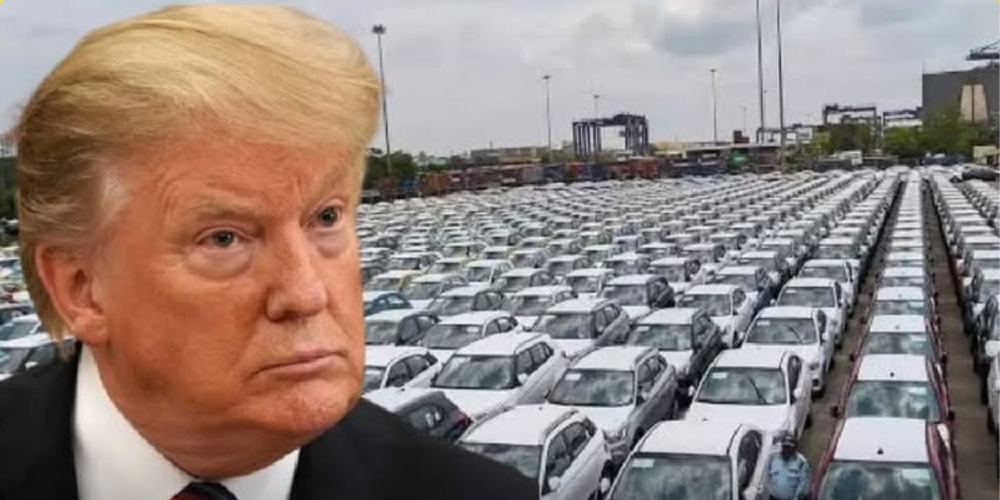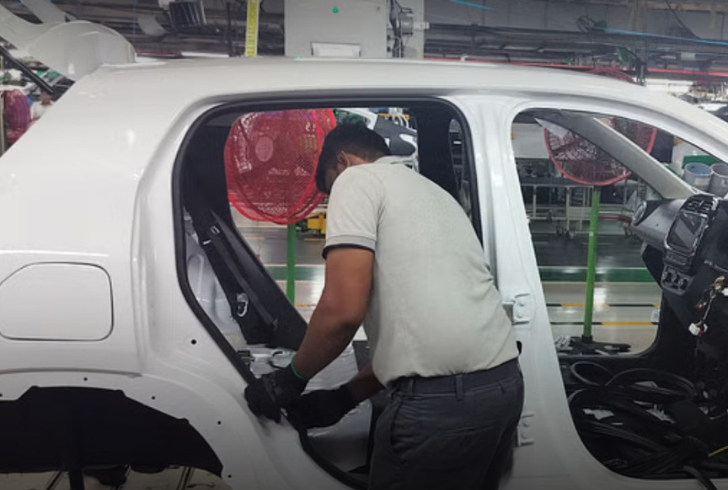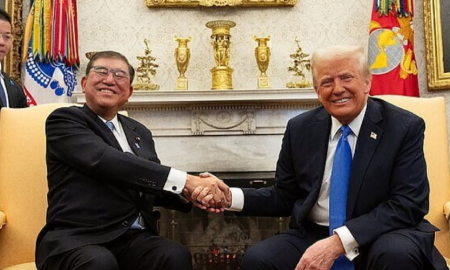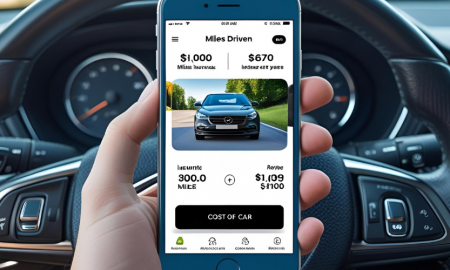
Trump’s Tariffs Are Increasing Car Part Prices – Is Auto Insurance Next?

The tariffs imposed by the Trump administration on goods imported from Canada and Mexico are causing ripple effects across multiple industries. While most people are focused on the impact these tariffs will have on the cost of goods like vehicles and parts, many overlook how this could affect car insurance premiums.
If these tariffs go into effect, car owners could see higher insurance premiums as part of the rising costs of repairs and replacements.
The Link Between Tariffs and Car Insurance Rates
The national average cost of full-coverage car insurance could rise by as much as 8% by the end of the year if President Trump’s tariffs on imports from Canada and Mexico take effect. That would mean an increase of approximately $189 per year, pushing the average premium from $2,313 to $2,502.
Although the analysis was based on initial tariff proposals, the impact may be even higher given the additional tariffs recently imposed on aluminum and steel.
How Tariffs Affect Car Insurance

Instagram | deccanherald | Tariffs inflate auto part prices, consequently raising car insurance costs through increased repair bills.
Many people may not see the link between tariffs and car insurance at first. However, these tariffs directly impact the cost of auto parts. Since parts make up a large portion of repair expenses, higher prices can drive up insurance costs.
Matt Brannon, a data journalist at Insurify, explains: “Tariffs increase car insurance premiums by raising auto part prices. Insurance costs are partly based on these prices.”
When car parts cost more, repairs become pricier. Insurance companies must adjust their premiums to cover these higher costs. As a result, car owners may face higher insurance rates whenever they need a repair or replacement part.
Increased Prices for New Cars and Repairs
The auto industry is highly vulnerable to tariff-related price increases. Many car parts used in U.S. repairs come from abroad. About 32% of these parts come from Canada and Mexico. Additionally, one-fifth of vehicles sold in the U.S. are manufactured in these countries.
Tariffs will also raise new car prices. Analysts predict a 25% tariff could add around $3,000 to the cost of a new vehicle. Currently, the average new car costs $48,641. With the increase, buyers could pay $51,641—a significant jump.
States Affected the Most by Insurance Rate Increases

Pexels | Vlada Karpovich | Car insurance rate increases due to tariffs will differ by state, with New York facing the steepest rise.
The impact of these tariffs will vary by state. New York is expected to see the highest increase in car insurance rates. In this state, the annual premium could rise by $489 by the end of the year, with $110 of that increase directly attributed to the tariffs on parts and vehicles.
Other states will also see premium increases. However, five states—Vermont, New Hampshire, Hawaii, New Mexico, and Idaho—may see rates remain the same or even decrease if the tariffs are lifted.
When Will Rate Increases Happen?
Car owners may not see an immediate increase in premiums. Insurers typically need approval from state regulators to raise rates, and this process takes time. As a result, any rate increases due to these tariffs will likely show up when drivers renew their policies or shop for new insurance providers. These increases will not likely appear during the middle of a policy’s coverage period.
While the rise in car insurance rates may not be noticeable right away, it’s clear that the long-term effects of these tariffs could result in higher premiums for drivers across the country.
The Larger Impact of Tariffs
The tariffs imposed by the Trump administration are a major concern for both consumers and the auto insurance industry. By raising car repair and replacement costs, these tariffs also drive up insurance premiums. Many people may not see the connection at first, but the impact on insurance costs is significant.
As car owners pay more for vehicles and insurance, staying informed is essential. Knowing how these changes affect finances helps drivers make smarter insurance decisions.
More inAuto News
-
`
U.S. Reduces Tariffs on Japanese Cars to 15% Under Trump’s Deal
In a move reshaping U.S.-Japan trade relations, former President Donald Trump confirmed a new agreement that slashes tariffs on Japanese car...
August 9, 2025 -
`
Adults in Ohio Face Stricter Rules to Obtain Driver’s License
Ohio has passed a new law that will change the way adults under 21 get their driver’s licenses. Signed into law...
July 31, 2025 -
`
Gen Z Craves Career Guidance, But Their Parents Are Struggling Too
Gen Z is stepping into the future with curiosity and ambition—but they’re not doing it alone. A growing number of teens...
July 25, 2025 -
`
Do Car Insurance Companies Offer Pay-As-You-Go Plans?
Car insurance premiums often feel unfair to people who rarely drive. Yet, most traditional auto policies still charge a fixed monthly...
July 17, 2025 -
`
Why the Koenigsegg Sadair Spear Is the Ultimate Hypercar Beast
Koenigsegg has revealed a new beast—the Sadair’s Spear. Tuning its focus on raw performance and brutal speed, this hypercar marks the...
July 11, 2025 -
`
Which States Have the Safest—and Riskiest—Drivers in America?
Driving safety isn’t just about skill. It’s also about location. A recent nationwide report shines a spotlight on where drivers are...
July 4, 2025 -
`
How to Save on Tesla Car Insurance Without Compromising Coverage
Owning a Tesla often brings savings on fuel and a futuristic driving experience, but the conversation changes quickly when it comes...
June 26, 2025 -
`
10 Weird Cars That Turned Heads and Won Hearts
Some cars turn heads with speed, others with luxury—but a rare few grab your attention simply by being delightfully strange. From...
June 20, 2025 -
`
Next-Gen Jeep Cherokee Expected to Arrive by Late 2025
After a break of two years, Jeep is prepared to relaunch the Cherokee brand. The automaker confirmed the return with fresh...
June 12, 2025















You must be logged in to post a comment Login